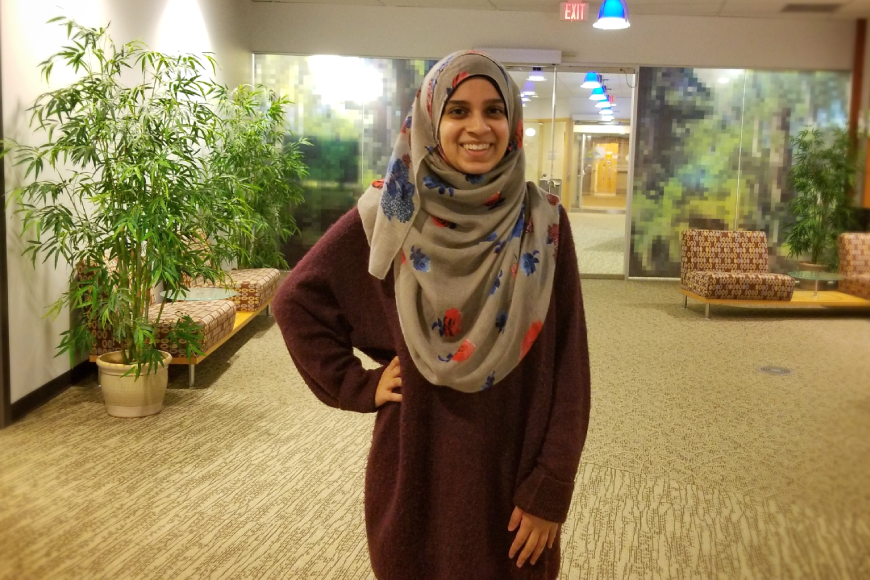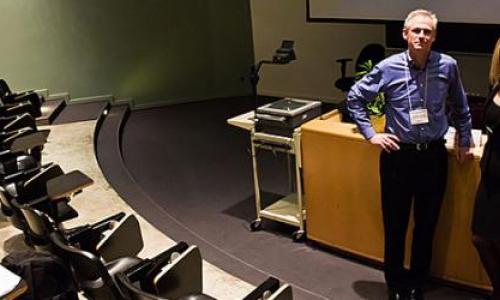
On any usual day, I wake up in the morning, get out of bed and leave my house knowing at the end of the day, I will return back to the comfort of my home. However, this is not the case for many hospitalized patients. They wake up in a hospital, often unsure of what the day or even what the next hour holds. The hospital, Fraser Health’s healthcare model and the patient’s overall health are just some of the determining factors identifying where and how a patient will be spending their day. Some patients are in the hospital for hours, some for days, others for weeks, and many for months. In my co-op position, working as a Research and Evaluation Assistant at Fraser Health with the Injury Prevention & Assessment team, I had the privilege of interacting with hospitalized patients and listening to their experiences at Fraser Health hospital sites within the lower mainland of Vancouver.
All About Audits
The first time I learned about audits and actually understood what they were was when I started my co-op position with Fraser Health. I learned that audits are commonly used in hospitals as a way to assess, evaluate and improve the quality of care patients are receiving. A large portion of my job included conducting different types of audits in hospitals. One of the audits was called the “Patient’s View” audits, which are primarily patient-centered. For these specific audits, our team interviewed hospitalized patients or their families on various acute care units at different hospital sites in the Lower Mainland. All selected interviewees were patients over the age of 17 and had been on the acute care unit we were auditing for over 48 hours. Our team used a survey with specific questions regarding each patient’s stay at the hospital. The objective of using this survey was to assess patient care quality by asking patients about their experiences in relation to their safety and care, during their stay on the unit. I found the “Patient’s View” audits to be very enlightening as I learned more about Canada and specifically, British Columbia’s healthcare model from the perspective of patients who are directly immersed in the receiving end of care.
The Power of Listening
I have found that an individual’s ability to speak and articulate his/her own thoughts well, tend to suppress those who’s strengths are in listening. I found that the “Patient’s View” audits enhanced my interpersonal skills, as I learned how to actively listen to the concerns and experiences of patients. Our job, as auditors, was to listen attentively to each patient and/or family member’s responses to the questions asked, and record them as communicated to us. During this auditing process, I realized how imperative active listening, as a skill is. While interacting with patients, I also realized that it is important to validate the concerns of the patient(s), to remain perceptive and thoughtful. For many patients, this was the first time someone, who was not a healthcare provider, asked about their experience during their hospital stay. In many instances, patients would share beyond what was asked from them, from our pre-set survey questions. I found this to be a challenge within itself as we had to set boundaries while still remaining empathetic. Oftentimes, patients and families felt appreciation towards us as auditors while listening to their experiences. However, I felt that I was the one gaining a lot from listening to all the experiences that patients had to share with us. I was able to not only learn a lot about patient-centered hospital care, but I also improved my listening skills and worked on being more attentive while interacting with different people. Overall, I was glad to be in a position where I had an opportunity to hear diverse experiences of the hospitalized patients.
“Good” vs. “Bad” Care
A positive aspect of auditing vast number of patients and families at large hospital units was that we received a variety of responses. On one hand, there were some patients and families who had only good things to say about their stay at the hospital, with no complaints regarding the care they received. But, on the other hand, there were other patients who had not had the best experiences at the hospital. Some patients would be in tears as they shared their hospital experiences with us, while others would be laughing and smiling. I recall one patient singing to my co-worker and I; there was never a dull moment. The majority of patients we interviewed had mixed emotions and experiences to share during the auditing phase. Oftentimes, patients shared experiences indicating that some areas of their care were not going so well, while they were content with other areas. Therefore, it was almost impossible to categorize patient experiences as “good” or “bad”. Additionally, I realized issues regarding healthcare are complex and cannot be labelled simply as ‘black’ or ‘white’. Amongst it all, it was clear more so than ever that patients are trying to make the best of an un-ideal situation.
Appreciating Healthcare Providers
There are many people and different factors involved in providing care to a single patient. There are numerous professionals trying to help the patients with different aspects of their health. There may be issues regarding equipment, wait times, environmental concerns and the patient’s own health and mental state. Despite this complexity, it seems everything and everyone is working together, like a well-oiled machine, ensuring the health and care of each patient is valued. When one part of the machine isn’t’ working as should, the other parts of this machine must work together to ensure that it continues to operate smoothly. This is where all those hardworking healthcare providers come into action. While conducting the “Patient’s View” audits with my team, I was able to spend a lot of time in the hospitals and was, therefore, able to observe firsthand the type of care and treatments patients and their families were receiving from hospital staff. Consequently, I had a chance to observe firsthand patient care and to hear from patients and families about the great efforts of nurses, physicians and many other health care providers. Many patients would mention specific names of nurses or physicians they felt were doing an amazing job. The thoughtfulness and dedication of the frontline staff were clearly evident as we went around various hospital units.
The Tangible Results
As we wrapped up surveying patients from the different health units within a single hospital, the audits would come to an end and we would move onto the next hospital. So, what happens now? Well, this was another big part of my co-op position: entering data and creating reports of the audits. Our team would head back to the main office to enter the data collected into an Excel template and then generate graphs that would be used to create a report for each unit. Each report then heads off to be reviewed and incorporated into a larger report. This report, with recommendations and audit data, is forwarded to hospital management. Our hope is that the data from the audits be of use and benefit to healthcare providers as they continue to do all they do and work to improve the safety, care and quality of patients’ experiences. Our team wants every patient to be receiving the best care possible. At the end of the day, our team felt we had done our part by listening to the experience of patients and being part of the process that could work to improve their experience and care.
Looking into the Future
I am so grateful for this opportunity to interview patients and conduct audits in a hospital setting with Fraser Health. I will never forget the numerous stories I had the opportunity in hearing and the different patients I had the privilege of meeting. As I continue on in this position for another semester, I can say that I am extremely excited to see what the future holds. Every day in this co-op position, every time we step into a patient’s room is unpredictable. However, I hope to hold onto that unpredictability factor and use it to my advantage as an opportunity to learn, grow and contribute.
Beyond the Blog
-
For more opportunities like Rasha's, visit the SFU HSCI co-op page!













